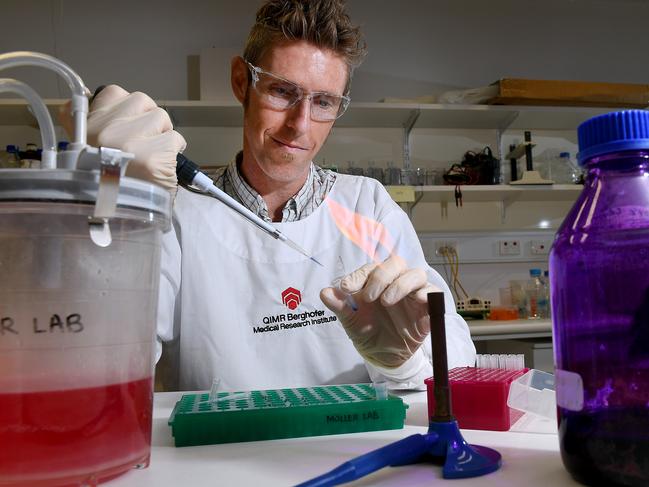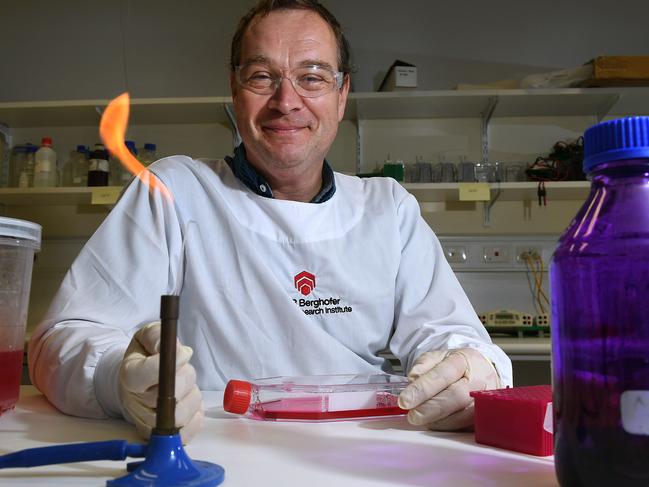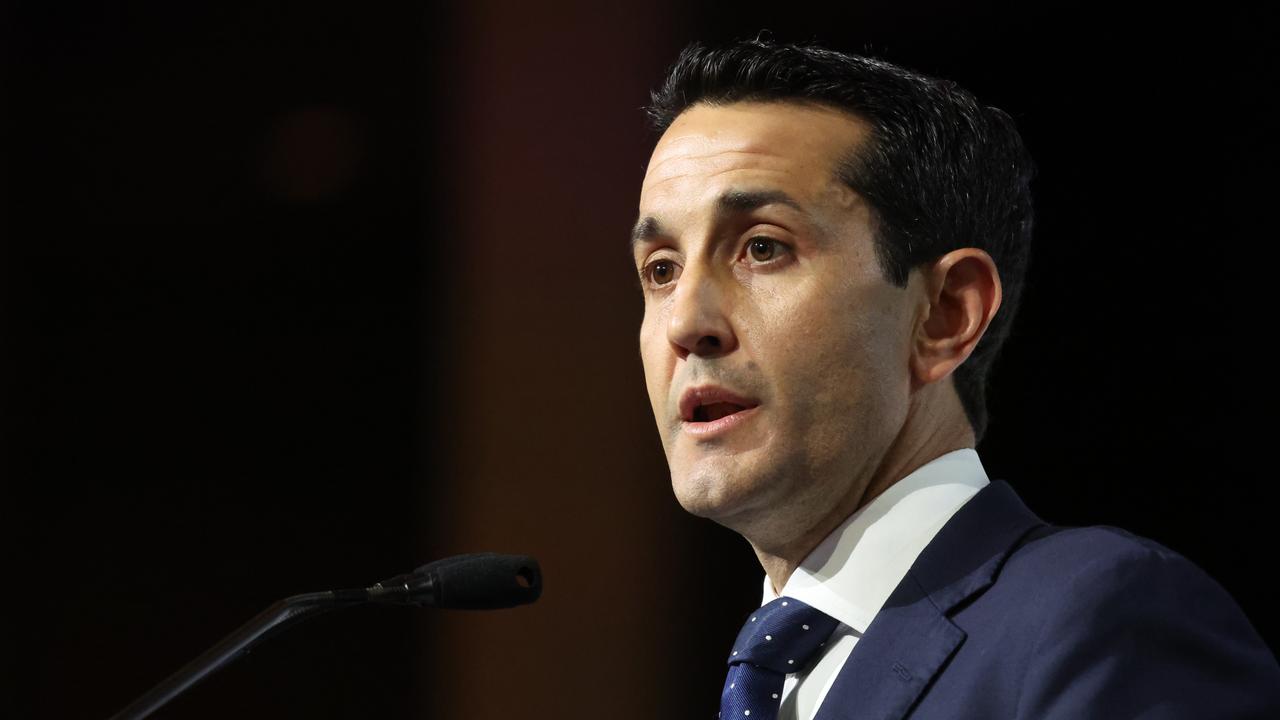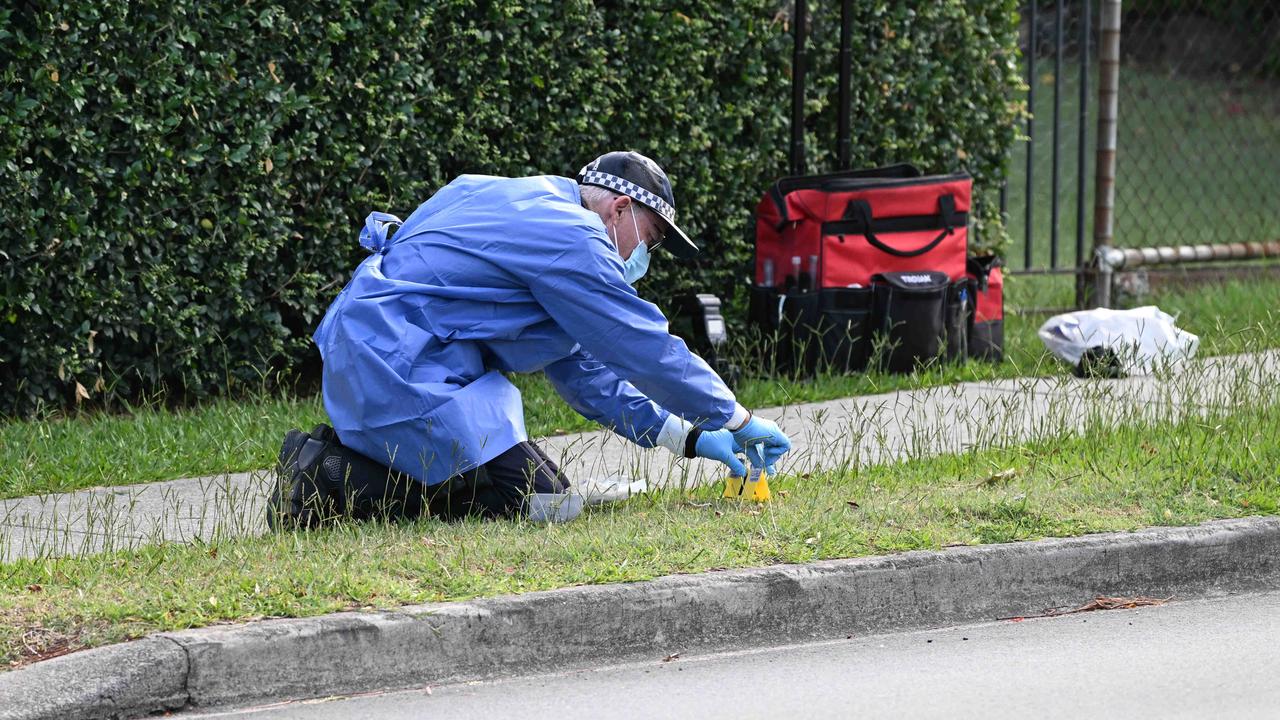Qld researchers discover why some breast cancer patients fail to respond to chemotherapy
QUEENSLAND researchers have discovered why some women with a particularly aggressive type of breast cancer fail to respond to a frontline chemotherapy drug in a breakthrough they believe will lead to more effective treatment.

QLD News
Don't miss out on the headlines from QLD News. Followed categories will be added to My News.
QUEENSLAND researchers have discovered why some women with a particularly aggressive type of breast cancer fail to respond to a frontline chemotherapy drug in a breakthrough they believe will lead to more effective treatment.
The scientists from the QIMR Berghofer Medical Research Institute say a simple blood test can determine whether or not a woman with triple negative breast cancer will respond to the common chemotherapy drug, doxorubicin.
Triple negative breast cancer accounts for about 15 per cent of all cases.
RESEARCHERS MAKE BOWEL CANCER BREAKTHROUGH
MINI MUSCLES COULD REVOLUTIONISE HEART DRUGS
WHY BRISBANE’S IN-BETWEEN TWINS ARE SO RARE
DRAWING BLOOD: STORY OF QUEENSLAND’S ONLY MEDICAL ILLUSTRATOR
Researcher Adrian Wiegmans said the study found that doxorubicin failed to kill breast cancer cells in women with high levels of a protein, known as prion, in their blood.
Associate Professor Wiegmans said the QIMR Berghofer scientists found the protein binds to doxorubicin, preventing it from getting into cancer cells.

By analysing the blood samples of about 30 triple negative breast cancer patients they found women with high levels of prion did better if they were prescribed the alternate chemotherapy, epirubicin.
“We were able to correlate the patient history of what chemotherapy drug they were given with the prion levels in their blood,” Prof Wiegmans said. “If they were treated with doxorubicin and had high levels of prion they didn’t do so well.
“Chemotherapy is a pretty rough journey. If you can prevent someone receiving therapy that won’t work, that’s a really good thing.”
QIMR Berghofer’s Tumour Micro-environment Group leader Andreas Moller, who was also involved in the study, published in the journal JCI Insight, said drug resistance was a serious problem for cancer patients.
“The ability to know if a patient will respond to a treatment is a huge advantage in fighting the disease,” Associate Professor Moller said.
“We hope that in the future, triple negative breast cancer patients will be screened for this protein when they are diagnosed to help guide what treatment should be offered.”

Prof Wiegmans said the research team hoped to be able to collaborate with a diagnostics company to take the test to the clinic, with the study’s findings expected to benefit triple negative breast cancer patients worldwide.
He said the study could have implications for several other cancers where doxorubicin was used, such as bladder, stomach, lung, ovarian and thyroid cancers, as well as some types of blood cancer.
The research findings come too late for 53-year-old Veronica Best, who died in Brisbane on January 17, about two years after being diagnosed with triple negative breast cancer.

Her friend Ty Marega said the former undercover policewoman and model would be “cheering from the heavens” about the Queensland research, having fundraised for a variety of causes throughout her life.
“Her positive attitude was such an inspiration,” Mr Marega said. “She never once complained and really had the most wonderful attitude, even right to the very end.”
A web page has been set up in her honour to raise money for triple negative breast cancer research at QIMR Berghofer.
To donate: 4vee.net


